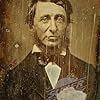John
asked
David B. Lentz:
David, Many thanks for your liking my comments on Young's intellectual biography of Nietzsche. You responded, however, while I was still entering my thoughts. Now I'm done. Perhaps you might like to consider the finished product? John
David B. Lentz
John, yes, this finished product is great stuff and here's the part of your review of Young's biography of Nietzsche which stayed with me after a second reading and lingers still:
"What impresses me most from a second reading of Young's account is how easily FN was persuaded of the absolute, universal truth of the thoughts he chose to record. FN makes endless claims about "man" without so much as a nod to qualification, quite as if his claims hold absolutely across all space and time, since the very first specimen of homo sapiens appeared on the planet. I simply can not get past the question: How is it possible that strength of conviction or the strength of feeling that his ideas are "true" persuaded FN (or anyone else, for that matter) that he has discovered or formulated "truths" that are indeed true and that exist and abide independently of his personal existence? Especially in view of the epistemology FN affirms - perspectivism - why did FN believe - apparently - that his thought was exempt from the limitations and qualifications at the source of all thought - according to the results of his own analysis? Isn't any affirmation of this kind convincing evidence of Nietzschean megalomania? As far as I can tell - and I have no intention of reading his work - the content of FN's books reveals nothing so much as evidence of upheavals in the writer's emotional/psychological life.
But for my purposes that is sufficient. It's utterly pointless to concern myself with the "truth value" - whatever that is - of a thinker's expressions of fact and faith. What interests me are his affirmations and negations, what he deemed undecidable, the questions/issues he ignored or found altogether uninteresting; the route a mind took to arrive at judgements/conclusions (and so on) - and why."
Why should any writer dare to write even a single word?
Of what value is the so-called "truth" -- even by epiphany -- articulated by a writer even to the writer?
How could such "truth value" possibly matter to anyone else?
I am intrigued by this extraordinary question concerning "truth value" for which a writer should have an simple, redemptive answer and yet I find that I have none, except for this: all that I can murmur and stutter and whisper is that ultimately writing must engage the fine art of grace.
An enlightened utterance, muddled though it may be in its expression, serves as meagre proof of the simple existence of epiphanies of grace and such grace may be taken as reassurance to humanity that life has meaning.
I am imperfect. I know that my imperfection exists. Therefore, I must be.
Well done, John: love the photo of Thoreau.
"What impresses me most from a second reading of Young's account is how easily FN was persuaded of the absolute, universal truth of the thoughts he chose to record. FN makes endless claims about "man" without so much as a nod to qualification, quite as if his claims hold absolutely across all space and time, since the very first specimen of homo sapiens appeared on the planet. I simply can not get past the question: How is it possible that strength of conviction or the strength of feeling that his ideas are "true" persuaded FN (or anyone else, for that matter) that he has discovered or formulated "truths" that are indeed true and that exist and abide independently of his personal existence? Especially in view of the epistemology FN affirms - perspectivism - why did FN believe - apparently - that his thought was exempt from the limitations and qualifications at the source of all thought - according to the results of his own analysis? Isn't any affirmation of this kind convincing evidence of Nietzschean megalomania? As far as I can tell - and I have no intention of reading his work - the content of FN's books reveals nothing so much as evidence of upheavals in the writer's emotional/psychological life.
But for my purposes that is sufficient. It's utterly pointless to concern myself with the "truth value" - whatever that is - of a thinker's expressions of fact and faith. What interests me are his affirmations and negations, what he deemed undecidable, the questions/issues he ignored or found altogether uninteresting; the route a mind took to arrive at judgements/conclusions (and so on) - and why."
Why should any writer dare to write even a single word?
Of what value is the so-called "truth" -- even by epiphany -- articulated by a writer even to the writer?
How could such "truth value" possibly matter to anyone else?
I am intrigued by this extraordinary question concerning "truth value" for which a writer should have an simple, redemptive answer and yet I find that I have none, except for this: all that I can murmur and stutter and whisper is that ultimately writing must engage the fine art of grace.
An enlightened utterance, muddled though it may be in its expression, serves as meagre proof of the simple existence of epiphanies of grace and such grace may be taken as reassurance to humanity that life has meaning.
I am imperfect. I know that my imperfection exists. Therefore, I must be.
Well done, John: love the photo of Thoreau.
More Answered Questions
John Sibley
asked
David B. Lentz:
This question contains spoilers…
(view spoiler)[
David I would be honored if you would make a comment on my new goodreads blog BUG LIGHT?
(hide spoiler)]
Saul Escalona
asked
David B. Lentz:
David, I read you review of "The Sun Also Rises ' of H. Hemingway and I found very interesting so I search for this author in Goodreads and went through his books and its ratings numbers. Beside "The old man and the Sea", it looks like that Hemingway is little read by the USA public although being a noble prize and a much renounced author. Any explanation why ?
About Goodreads Q&A
Ask and answer questions about books!
You can pose questions to the Goodreads community with Reader Q&A, or ask your favorite author a question with Ask the Author.
See Featured Authors Answering Questions
Learn more






Dec 06, 2015 05:26AM
Dec 06, 2015 08:29AM
Dec 06, 2015 03:19PM